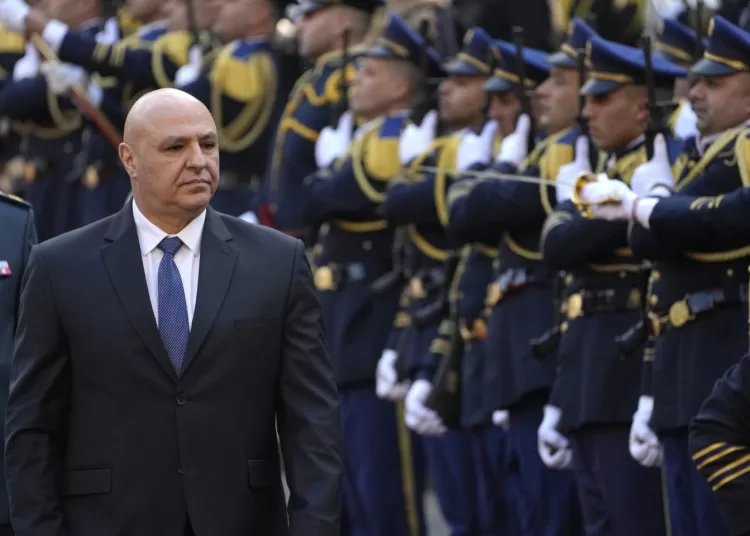BEIRUT – Lebanon’s parliament voted today to elect the country’s army commander, Joseph Aoun, as head of state, filling a more than two-year-long presidential vacuum.
The vote came weeks after a tenuous ceasefire agreement halted a 14-month conflict between Israel and the Lebanese militant group Hezbollah and at a time when Lebanon’s leaders are seeking international assistance for reconstruction.
Aoun, no relation to former president Michel Aoun, was widely seen as the preferred candidate of the United States and Saudi Arabia, whose assistance Lebanon will need as it seeks to rebuild.
The session was the legislature’s 13th attempt to elect a successor to Michel Aoun, whose term ended in October 2022.
Hezbollah previously backed another candidate, Suleiman Frangieh, the leader of a small Christian party in northern Lebanon with close ties to former Syrian President Bashar Assad. However, on Wednesday, Frangieh announced he had withdrawn from the race and endorsed Aoun, clearing the way for the army chief.
Randa Slim, a senior fellow at the Washington, D.C.-based Middle East Institute, said that the military and political weakening of Hezbollah following its war with Israel and the fall of its ally, Assad, in Syria, along with international pressure to elect a president paved the way for today’s result. In a first round of voting today, Aoun received 71 out of 128 votes but fell short of the two-thirds majority needed to win outright. Of the rest, 37 lawmakers cast blank ballots and 14 voted for “sovereignty and the constitution.”
In the second round, he received 99 votes.
Lebanon’s fractious sectarian power-sharing system is prone to deadlock, both for political and procedural reasons. The small, crisis-battered Mediterranean country has been through several extended presidential vacancies, with the longest lasting nearly 2 1/2 years between May 2014 and October 2016. It ended when former President Michel Aoun was elected.
The president’s role in Lebanon is limited under the power-sharing system in which the president is always a Maronite Christian, the prime minister a Sunni Muslim and the speaker of parliament Shiite.
However, only the president has the power to appoint or remove a prime minister and cabinet. The caretaker government that has run Lebanon for the last two years has reduced powers because it was not appointed by a sitting president.
Joseph Aoun is the fifth former army commander to ascend to Lebanon’s presidency, despite the fact that the country’s constitution prohibits high-ranking public servants, including army commanders, from assuming the presidency during their term or within two years of stepping down.
Under normal circumstances, a presidential candidate in Lebanon can be elected by a two-thirds majority of the 128-member house in the first round of voting, or by a simple majority in a subsequent round.






Discussion about this post